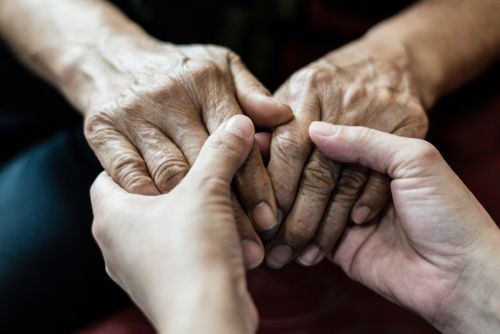Hospice Provides Comfort & Care During the End-of-Life Journey
End-of-life isn’t always easy to accept but hospice agencies like Journey Hospice. Journey Hospice Care Inc can make preparing for the death of a loved one easier by providing comfort and care for the patient and their family during this difficult time. Comfort care is an essential part of medical care at the end of life. It is care that helps or soothes a person who is dying. The goals are to prevent or relieve suffering as much as possible and to improve quality of life while respecting the dying person’s wishes. [1]
All too often families wait until the final days or weeks of their loved one’s life to seek hospice care. To ensure the patient and family alike are able to fully benefit from the services offered by hospice, end-of-life care and should be sought out during the beginning stages of terminal illness or declining health in the elderly.
According to the National Hospice and Palliative Care Organization, Approximately 35.5% of hospice patients receive care for just seven days or less. In 2014, 50.3% of patients died or were discharged within 14 days of admission. Only 10.3% of patients remain under hospice care for longer than 180 days [2]. Eligible patients, however, are able to begin receiving hospice care for terminal illness months earlier, but when is the best time to take the next step towards end-of-life care?
Signs It May Be Time for Hospice Care
When the health of an elderly or terminally ill patient starts to decline and standard medical treatments are no longer successful, this is when hospice care should be taken into consideration. Here are a few important warning signs to help you and your family make an educated decision on whether hospice care is needed:
- Frequent trips to the emergency room
- Frequent pain that’s difficult to treat
- Reduced desire to eat, resulting in significant weight loss
- Decreased alertness, withdrawal, or increased sleeping
- Loss of urinary or bowel control
- Decreased food and fluid intake
- Inability to perform daily tasks without assistance
If you believe your loved one is in need of end-of-life care, it’s important to speak with a hospice agency right away to learn more about eligibility requirements and what options are available for your family.
Providing Comfort & Care During End-of-Life
A common misconception about hospice is that hospice is a specific place where patients who are nearing the end of their life go to. Hospice is not a place where end-of-life patients go to, but is a service that is delivered to the patient at their current place of residence, whether that be their personal home or a relatives home, a nursing home or an assisted living facility. Hospice staff is on call for the patient 24 hours a day, seven days a week and typically includes a team of:
- Doctors
- Nurses
- Home health aides
- Spiritual counselors
- Social workers
- Pharmacists
- Volunteers
- Speech, physical and occupational therapists (if needed)
- Bereavement counselors
No matter where hospice care is provided, sometimes it’s necessary to be admitted to a hospital. For instance, if a symptom can’t be managed by the hospice care team in a home setting, a hospital stay might be needed. [3] The ultimate goal of hospice care is not to extend life or delay death, but instead to provide the patient with comfort, care and the highest quality of life possible during their final months, weeks or days. Further, hospice care can help decrease the distress of the family by emotionally and financially preparing family members for the death of their loved one, making the burden of grief easier to carry and providing an opportunity to gain closure.
Our hospice professionals are here to answer your questions and help you be better prepared for the end-of-life journey.
- https://www.nia.nih.gov/health/providing-comfort-end-life
- https://www.nhpco.org/wp-content/uploads/2019/08/Hospice_Policy_Compendium.pdf
- https://www.mayoclinic.org/healthy-lifestyle/end-of-life/in-depth/hospice-care/art-20048050#:~:text=Hospice%20care%20is%20for%20people,psychological%2C%20social%20and%20spiritual%20needs.

